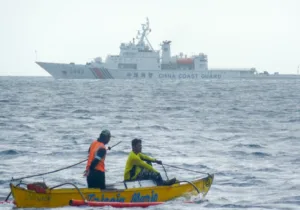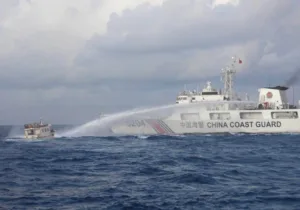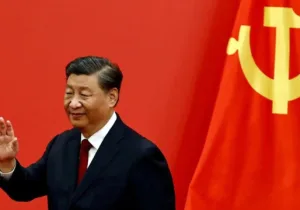I’m grateful to Amy Fallas over at Religion Dispatches for taking the time to respond to my essay discussing the death of John Allen Chau. However, I’m not entirely convinced she’s advanced the conversation all that much—at least not in the way I think she anticipated. Rather than challenge anything I said, I think she has instead only confirmed it. But I do think the confirmation—even if inadvertent—is helpfully instructive and warrants comment.
The primary problem is our essays aim at different things. In her own enthusiasm to utilize history to critique the present, Fallas chides me for failing to interrogate “how American Christianity’s past reckoning with the legacy of its foreign missions can inform the Chau case.” While I did gesture to some of this when suggesting what Chau could have done differently, Fallas is right that I offered no in-depth analysis. My essay was aimed at looking at how religious beliefs—or normative values more generally—have motivated and shaped US foreign policy and the views of those who both support and critique it. I did this by observing how reactions to Chau’s intentions and course of action parallel reactions to American foreign policy on a larger scale.
I stressed that “many of those who disagree with [Chau’s] actions—and with his Christian missionary zeal more broadly—also have a general disdain, or distrust, for notions of American exceptionalism that lead to intervention abroad and the export and manifestation of a values-based foreign policy.” The bulk of my essay was then a cautionary tale against those who display such disdain and distrust.
Toward the end of my essay, I do discuss Chau more directly but not quite in the manner Fallas suggests. She writes that I contend that Chau’s “spiritual zeal is worthy of emulation” and that “we should celebrate Chau’s ‘spark’ as a ‘source of enormous good in the world.’” That’s a misleading simplification, and a rather odd one. Indeed, at various points I speculate that Chau’s behavior was “impulsive,” “unnecessarily rushed,” “foolhardy,” and “rash.” When I suggest—depending on how the living respond—that good might nevertheless come of it, I use the analogy of good fruit born of an adulterous act. None of that seems as laudatory as Fallas suggests. The “spark” that I do laud—including where it is present in Chau—is the Christian love that provokes, and has provoked throughout history, extraordinary acts of other-centered self-donation. I defend that spark—not necessarily Chau’s expression of it—as a great good. In what follows I make pretty plain that sparks need to be directed—neither doused nor allowed to simply burn unrestrained.
Obviously, all this is insufficient for Fallas. Her primary interest is “that we consider the [missional] antecedents to Chau’s example and learn from them.” She provides two such examples.
Fallas first draws our attention to the 1932 monograph Re-Thinking Missions: A Laymen’s Inquiry After One Hundred Years, the published results of an extensive examination of the missional beliefs and practices of seven participating Christian denominations. The commission’s report, Fallas summarizes, recommended “a reorientation of missionary approach emphasizing education, social services, partnership with local communities, and respect for local religious traditions.”
In her second example, Fallas points to missional efforts that focused on assisting those in need. During World War I, she notes, “American missionaries across the Middle East were key protagonists in forming the Near East Relief, which administered aid to millions displaced by war and conflict.” This spirit continued into the mid-twentieth century wherever “missionaries and faith-based organizations were at the forefront of addressing global refugee crises following World War II and subsequent civil conflicts such as the migration from the Horn of Africa in the 1990s.”
Failing to attend to such missional antecedents, Fallas contends, is a “glaring absence” amounting to “historical amnesia.” Had I considered such examples, she suggests, I, like her, would realize that when considering Chau’s misadventure in the Indian Ocean “it’s not about what we can learn from Chau but what we’ve already learned from our foreign ventures in the past.”
Fallas is wrong about this. But she’s wrong in an interesting way. This can be seen in noting at least one characteristic that both her examples hold in common.
Fallas readily admits that the Re-Thinking Mission report was “highly contested” among Protestant missionaries. Indeed, it was. So much so, as I understand it, that upon its publication the seven participating denominations all publicly distanced themselves from it. I admit to an only passing familiarity with the text, but I imagine some of the disagreement had something to do with another of the commission’s recommendations—which Fallas doesn’t mention—that missionaries should de-emphasize evangelism.
This de-emphasis on evangelism is present too in her second missional example. Whereas in the report evangelism’s lower priority is a proposed strategy, here it is largely a matter of necessity. As the smoke clears from the battlefield, and especially when war is still raging, unhoused people need shelter, the ill need medical attention, and the hungry need food.
Neither of the examples Fallas references, taken singularly or together, reveals lessons learned. The Re-Thinking Mission report is not a consensus regarding best practices moving forward; it is an argument. The humanitarian relief of the second example is neither a consensus nor an argument; it is a case study. Fallas can draw lessons from it, but they are not proofs. A Christian oral surgeon is right to focus on my child’s shattered teeth during an emergency procedure, but just because he doesn’t also share the gospel doesn’t mean he’s settled proof for the value of de-emphasizing it.
So while both examples give us material on which to focus our discussion, because any lessons drawn from them will be controversial in pretty much the same ways that Chau’s actions were controversial, they are not so much “glaringly absent” from the current debate, as they are simply two more examples of this debate, and reminders that this debate is ages old.
It seems to me that at heart here are competing understandings of what it means to love. My essay is based on the simple observation that there are at least two clusters of people who will draw very different clusters of lessons from just such case studies as Fallas presents. As I note, while these two clusters might easily come together over broad concerns such as providing basic necessities like food to war-displaced persons, they will likely fracture over the details—such as whether to say grace before serving that food! As with missionaries, so too with foreign policy observers. The values and religious sentiments at play in evaluating missionary efforts are very much the same values and religious sentiments at play in evaluating any kind of foreign intervention.
People in both camps would do well to remember that neither has a default claim to the moral high ground. That, too, is contested terrain.
—
Marc LiVecche is the executive editor of Providence, and the McDonald Visiting Scholar at McDonald Centre for Theology, Ethics, and Public Life at Christ Church, Oxford University.
Photo Credit: John Allen Chau in October 2018, via Instagram.






